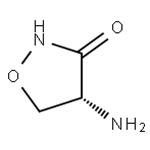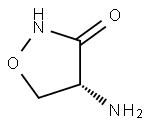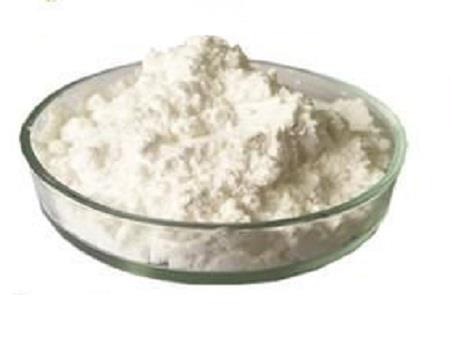D-cycloserine in Neuropsychiatric Disorders and Cognitive Enhance
Introduction
D-cycloserine (DCS) has a unique potential to target the glycine-binding site of N-methyl-D-aspartate (NMDA) receptors in humans. D-cycloserine is a natural product of Streptomyces orchidaceus and Streptomyces garyphalus, which has been known in tuberculosis therapy since the late 1950s. Years later, Thomas et al. (1988) found its central active mechanism to be a selective partial NMDA agonist acting at the glycine-binding site of the NMDA receptor. It was postulated, and later proven on slice preparations, that D-cycloserine influences long-term potentiation (LTP), a neuronal mechanism thought to be relevant for learning. Since then, neuropsychiatric studies have been carried out to evaluate the potential of D-cycloserine for neurological and psychiatric conditions such as Alzheimer’s disease, schizophrenia, depression, and anxiety disorders. [1]
Improving the Learning in Exposure Therapy
Because the blockade of the NMDA receptor impairs extinction, it was logical to wonder if enhancing the functioning of that receptor would enhance extinction. D-cycloserine is administered either systemically or directly into the rats’ amygdala before extinction training and then tested retention of extinction the next day. D-cycloserine does not bind to the NMDA receptor itself but to another receptor on the NMDA protein called the glycine regulatory site. Activation of this site improves the ability of the NMDA receptor protein to flux calcium, which initiates a variety of intracellular events that are critical for learning. [2]
D-cycloserine Reduces Reinstatement of Learned Fear After Extinction
In another study, Ledgerwood et al (2004) found that D-cycloserine might block relapse (i.e., a return of the learned fear response) that normally occurs when extinction training is followed by a stress, a phenomenon referred to as reinstatement. In that study, rats were first trained to be afraid of a light by pairing it with a footshock and then, the next day, given extinction training followed by injection of either D-cycloserine or saline. To equate levels of fear before stress, the saline-treated rats were given an additional day of extinction training. Some rats were then re-exposed to the shock 24 hours before test. If this shock re-exposure occurred in the test context, then rats in the saline condition exhibited a return of conditioned freezing; rats treated with D-cycloserine did not exhibit this return of learned fear after the pre-test shock treatment. [2]
D-cycloserine with Autistic Disorder
Significant improvement was found on the CGI and social withdrawal subscale of the Aberrant Behavior Checklist. D-cycloserine was well tolerated at most of the doses used in study. In the preliminary study, D-cycloserine treatment was associated with reduced social withdrawal and increased social responsiveness in a group of subjects with autism. In 40% of these subjects, the improvement was clinically meaningful, and both the parent and clinician rated them as “much improved.” In addition, the effects seen at the higher doses of D-cycloserine were secondary to a delayed placebo effect or to longer duration of treatment with lower doses of D-cycloserine. Overall, these preliminary results suggest that D-cycloserine might have efficacy for certain aspects of social impairment in autism. A randomized controlled trial of D-cycloserine in autism appears warranted. [3]

D-cycloserine for Alzheimer's disease
The findings suggest that short-term D-cycloserine treatment exerts a cognitive enhancing effect for Alzheimer’s disease patients when given at a dose of 100 mg/day. The magnitude of this effect of D-cycloserine is comparable to that of the acetylcholinesterase inhibitor donepezil. The results are consistent with the critical role that N-methyl-d-aspartic acid (NMDA) receptors play in cognition. The findings also provide Alzheimer’s disease patients with an alternative to the cholinergic, antioxidant, estrogen, and anti-inflammatory therapies. In the study, short-term D-cycloserine treatment enhanced the cognitive performance of Alzheimer’s disease patients but did not unequivocally improve the activities of daily living or the global clinical impression scores. The definitive functional implication of D-cycloserine treatment needs to be addressed in long-term, parallel-design studies of large numbers of subjects to determine whether cognitive improvements persist and whether the overall functional capacity of patients with Alzheimer’s disease is also maintained or improved by time. [4]
References:
[1] Schade, S., & Paulus, W. (2016). D-cycloserine in neuropsychiatric diseases: a systematic review. International Journal of Neuropsychopharmacology, 19(4), pyv102.
[2] Davis, M., Ressler, K., Rothbaum, B. O., & Richardson, R. (2006). Effects of D-cycloserine on extinction: translation from preclinical to clinical work. Biological psychiatry, 60(4), 369-375.
[3] Posey, D. J., Kem, D. L., Swiezy, N. B., Sweeten, T. L., Wiegand, R. E., & McDougle, C. J. (2004). A pilot study of D-cycloserine in subjects with autistic disorder. American Journal of Psychiatry, 161(11), 2115-2117.
[4] Tsai, G. E., Falk, W. E., Gunther, J., & Coyle, J. T. (1999). Improved cognition in Alzheimer’s disease with short-term D-cycloserine treatment. American journal of Psychiatry, 156(3), 467-469.
You may like
Related articles And Qustion
See also
Lastest Price from D-Cycloserine manufacturers

US $0.00/kg2025-11-19
- CAS:
- 68-41-7
- Min. Order:
- 1kg
- Purity:
- 98%
- Supply Ability:
- Customise

US $0.00-0.00/KG2025-05-09
- CAS:
- 68-41-7
- Min. Order:
- 1KG
- Purity:
- 99.0%
- Supply Ability:
- 10000KGS





